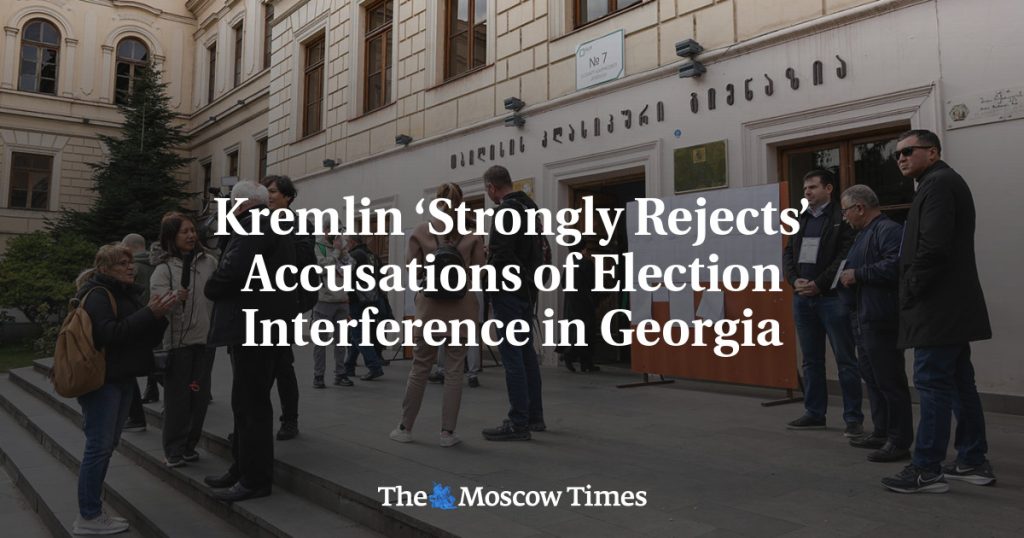The Kremlin has strongly rejected accusations from Georgia’s President Salome Zourabichvili that Moscow interfered in the recent parliamentary elections in Georgia. Kremlin spokesman Dmitry Peskov stated that the accusations were unsubstantiated and that there was no intervention from Russia’s side. He claimed that there were attempts to destabilize the situation in Georgia, but this was not coming from Russia. Peskov also pointed out that various European institutions and countries had tried to influence the outcome of the vote.
Despite Georgian Dream winning 54% of the vote and a majority of seats in parliament, the opposition in Georgia refused to concede defeat in the recent elections. This has led to a potential political crisis in the country with opposition groups organizing protests and calling for investigations into the election irregularities. While there were reports of pressure on voters and polarization during the elections, international observers noted that the campaigning process was competitive and offered voters a wide choice.
Officials from Brussels and Washington have raised concerns about irregularities in Georgia’s elections and have called for further investigations into the matter. The disputed election results have created a tense political atmosphere in Georgia, with the opposition questioning the legitimacy of the outcome. The situation may escalate into a significant political crisis if the concerns raised by the opposition are not adequately addressed in a transparent and fair manner.
The ongoing tensions between Russia and Georgia have further complicated the situation, with President Zourabichvili accusing Moscow of being behind election fraud in the country. The Kremlin’s denial of these allegations has added fuel to the fire, as the two countries continue to have strained diplomatic relations. The accusations and denials from both sides have only served to deepen the mistrust and animosity between Russia and Georgia, making it challenging to resolve the political crisis that has emerged from the recent elections.
The situation in Georgia highlights the delicate nature of democracy and the importance of transparent and fair elections in maintaining political stability. The allegations of election interference and irregularities have raised significant concerns both domestically and internationally, with calls for thorough investigations and accountability. It remains to be seen how the political crisis in Georgia will be resolved and whether the concerns raised by the opposition will be addressed in a manner that restores trust in the electoral process in the country. The Kremlin’s rejection of the accusations and the opposition’s refusal to concede defeat have both contributed to the complexity of the situation and the uncertainty surrounding the future of Georgian politics.














